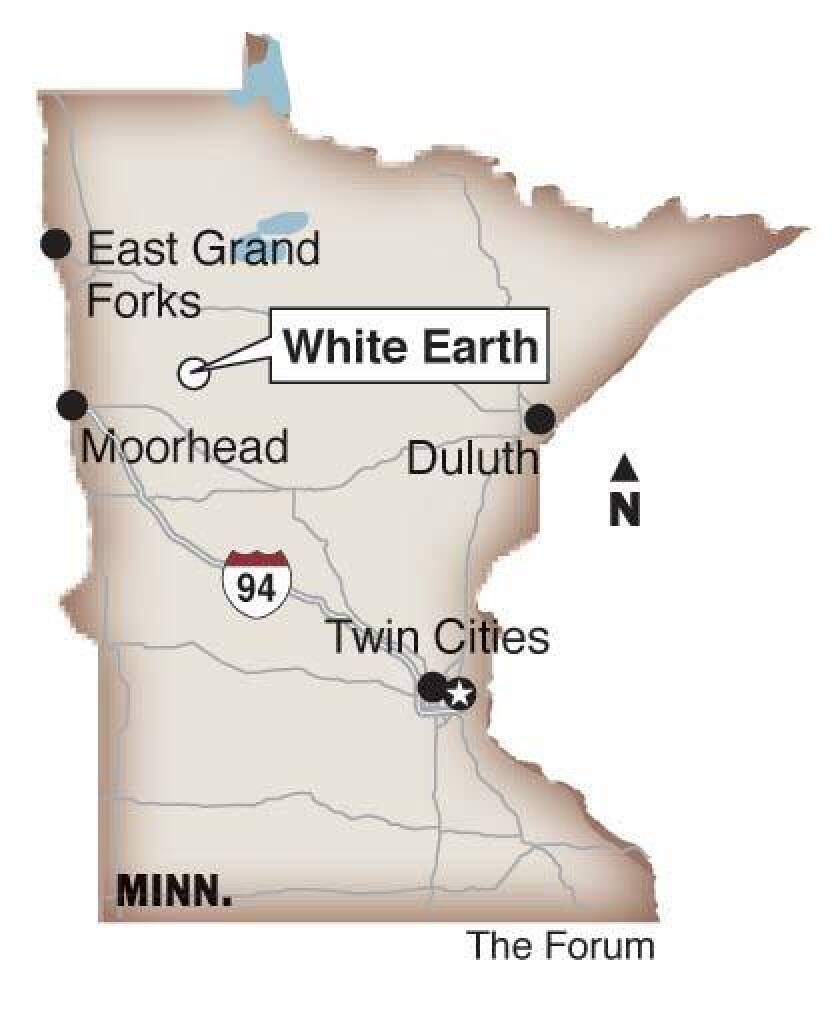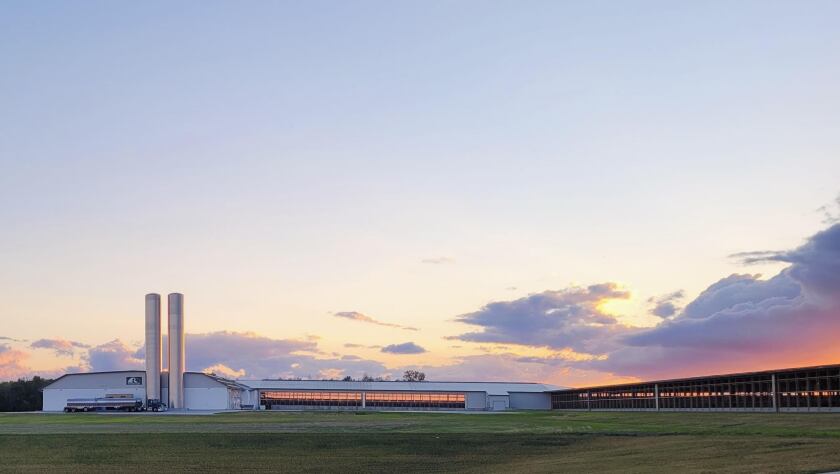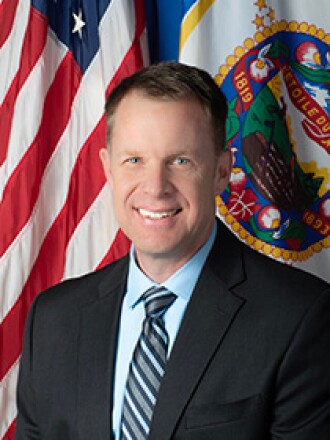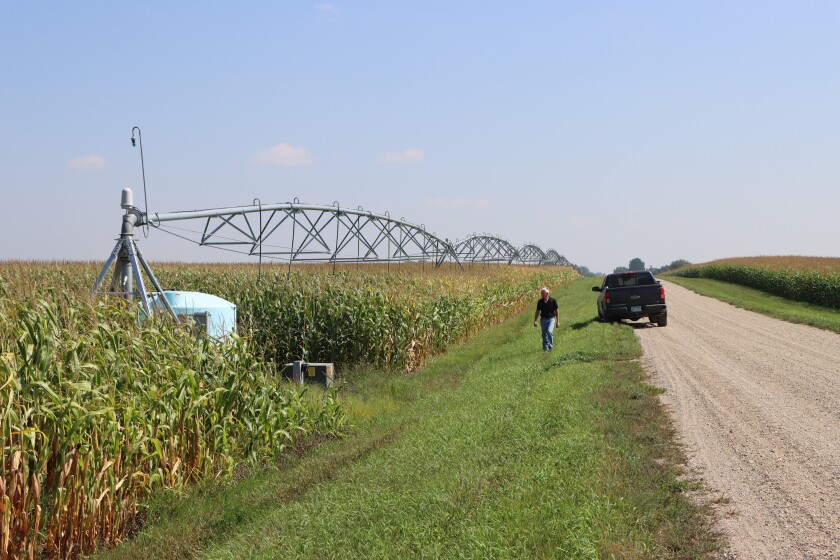WHITE EARTH, Minn. — The White Earth Nation’s Reservation Business Council and an attorney working for them see the process of developing their own water ordinance that requires tribal permits for irrigation as a fair process and a way to use the Band’s sovereign rights.
But farmer David Vipond, who is the first farmer to deal with the new ordinance, sees it differently.
ADVERTISEMENT

“They have an environmental-activist attorney who is pushing their cause and cashing a big check. That’s my opinion,” he said.
, in addition to the Minnesota Department of Natural Resources permit.
Vipond thinks the tribes have friendly state and federal administrations and are trying to get as much done now, in case that changes. Vipond is concerned about duplication, expense and a lack of predictability.
For example, a water acquisition applicant must provide an “initial review fee” of $5,000 to cover White Earth Department of Natural Resources’ “staff time and Retained Expert time spent, reviewing, processing and acting upon permits.” Those are steps that already would have been completed by the Minnesota Department of Natural Resources. Any “unused” part of the fee would be refunded, but to pursue it further means no upper limit.
Part 1: Battle brews with farmers as White Earth Nation asserts authority over water rights.
Part 2: White Earth Nation says water ordinance is allowed under 20th century treaties
Part 3: White Earth Nation works on move toward sustainability, food sovereignty
Part 4: As business withdraws, Minnesota leaders side-step White Earth Nation water dispute
Part 5: (Coming Oct. 27) Minnesota farmers express concern over future of agriculture near White Earth Nation
“They could use whatever experts they felt were necessary, which is basically an open-ended blank check,” Vipond said.
He’s seen an increased pattern of anti-agricultural moves by the tribe, beginning in January 2022, when Eric Zurn of Calloway, Minnesota, proposed building a farrowing barn with a capacity of 2,500 pigs — technically 999 “animal units,” varying by species but equal to the number of cows with a suckling calf. On Sept. 6, 2022, Becker County approved a two-year conditional permit. Such operations are not unusual in Minnesota.
According to the National Pork Producers Council, Minnesota ranks second among states in pork production, with most in western Minnesota. Pork markets and pork processing generate more than $1.9 billion in personal income, with $3.3 billion in added value.
ADVERTISEMENT
On Dec. 1, 2022, the tribe declared a two-year moratorium on any “large livestock and dairy operations.” Zurn has not started to build and declined to be interviewed for this story.

On June 20, 2022, the Riverview LLC, of Morris, Minnesota, started milking at its 10,500-head dairy called in Waukon Township of Norman County at Gary, Minnesota. Riverview LLC in 2023 proposed a second 20,000-cow dairy project by Riverview Farms in eastern Norman County — 2 miles west of the reservation. Vipond had verbally expressed interest in using some of the manure fertilizer on his farm as part of the farm application process. Riverview’s permit had asked to take up to 325 million gallons a year from the Wild Rice River at a point outside reservation and flowing away from it, and another 40 million to 50 million gallons from groundwater, as needed for animal drinking and for cleaning the barn.
On Jan. 24, 2023, Vipond attended a tribal informational hearing at the Shooting Star Casino in Mahnomen, a tribal-owned gambling and entertainment center.
In the meeting, Jamie Konopacky, now White Earth Band’s outside counsel on environmental issues and then an in-house attorney for the band, said the 20,000 cows would equate to the poop produced by 600 million people in a city. Vipond calculated the manure volume would be far smaller than that, perhaps 500,000 people. Konopacky in the meeting said the dairy would take up to 10% of the river’s volume. But Vipond, a former member of the Wild Rice Watershed Board, calculated it would take up to three-tenths of 1%. Vipond said the dairy would pump its greatest volume in April, May and June and their annual use would be less than 8 hours during that period, he said.
After the meeting, Vipond wrote an email to Konopacky questioning her statistics.
Officially, the company notified the Minnesota DNR that they were withdrawing their proposal March 6, 2023.
Dustin Roy, director of the White Earth Department of Natural Resources, , said Riverview withdrew its project when tribal officials told them the tribe controlled a dam on Rice Lake, which feeds the river.
ADVERTISEMENT
“It was like someone popped them right in the nose,” Roy told the reporter for “Circle of Blue.” “They had no idea that we have the ability to manage water upstream on the river. There was dead silence for two weeks.”
And then Riverview withdrew.
A source with Riverview LLC acknowledged they withdrew the permit on March 4, 2023. He said community acceptance was part of the reason. Vipond said his farm and the dairy are more than 30 miles downstream from the Rice Lake dam, and more than 300 feet lower.
Talks and treaties
Konopacky said the tribe was in contact with the state of Minnesota “before and after” adopting a new water ordinance on May 5, 2023. (All of the players — farmers, state officials and tribal officials — have their stories about the non-responsiveness of the others.)
But when Agweek asked about the tribe’s first notice on it, Konopacky sent a copy of a letter dated July 24, 2023 — 11 weeks after it was adopted. The letter was not a specific invitation, but Konapacky said there had been no “response or engagement” or willingness to “have that conversation.”
Said Konopacky: “The ball is in the state of Minnesota’s court.”

Thom Petersen, Minnesota’s appointed agriculture commissioner, said Vipond and other farmers had contacted him before he got the tribe’s letter. He expected to talk about the issue in a meeting that had been scheduled for Sept. 21, 2023, but the tribe canceled the meeting.
ADVERTISEMENT
Petersen said he has no expertise on the legal issues involving “federal and treaty law” and that there may be precedent cases on either side of the question. Petersen is concerned about the costs of a “duplicative” process for farmers.

Jess Richards, assistant commissioner of the Minnesota Department of Natural Resources, acknowledged the letter was his first notice of the ordinance. He said White Earth Nation hasn’t indicated to the Minnesota DNR that their permit “takes precedence over the Minnesota process.” But the White Earth ordinance doesn’t mean the Minnesota DNR won’t continue to do its “normal process” on permits, in which applicants pay $150 to apply for a permit and an annual “water use” fee of $3.50 per 1 million gallons used — $350 for a 100 million gallon permit.
“We are not involved in that back-and-forth between White Earth and those individual permittees, even though we are aware of the situation,” Richards said.
Richard said the reservation and surrounding area has 129 Minnesota DNR high-volume permits — 85 on the reservation and another 44 in the 5-mile belt. Among its 3,000 employees, Minnesota DNR has the equivalent of 25 hydrologists and other professionals working in water appropriations, including six whose territory includes the White Earth Reservation areas. The Minnesota DNR issues permits based on whether the project can pump without impacting nearby wells and without impacting the ecology or the fishery, he said.
Richards said the level of “coordination” between agencies and the tribes started to increase under the Mark Dayton administration (2011-19) and increased under the Tim Walz administration (2019-current). Today, the Minnesota DNR engages with the tribe “on every sort of permit that comes within the reservation,” he said.
Others in state government acknowledge they have heard about the dispute. U.S. Rep. Pete Stauber, R-Minn., confirmed that he has received at least six complaints from constituents who felt unfairly pressured in or around the White Earth reservation, but he had not yet developed a response.
“The state level, my impression: Everybody wants to stay as far away from this as they can,” Vipond said. He notes that Minnesota Lt. Gov. Peggy Flanagan is a member of the White Earth Band of Ojibwe.
ADVERTISEMENT
A native of St. Louis Park, Minnesota, Flanagan holds a bachelor’s degree in American Indian studies from the University of Minnesota. Like White Earth Reservation Business Council Chairman Michael Fairbanks, she has a career as a Native American activist, organizer, and not-for-profit executive. Flanagan served in the Minnesota House of Representatives after a special election in 2015. She became the running mate for Gov. Tim Walz in 2017. Flanagan did not respond to a request for comment on the situation.










